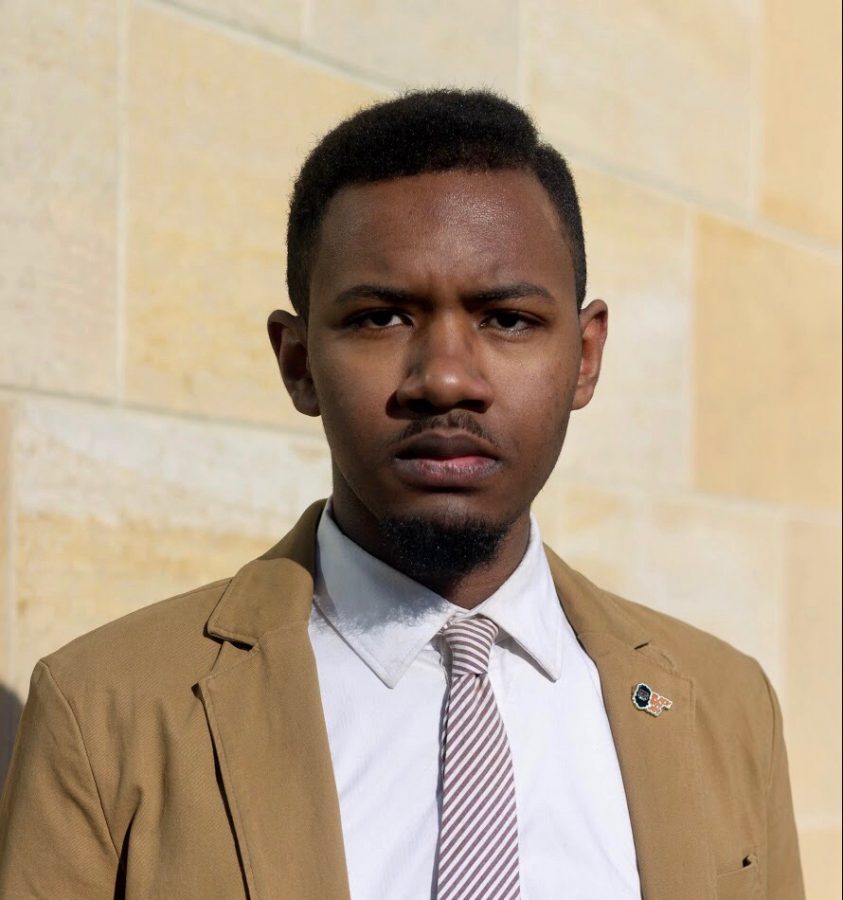Student Charles Wallace-Thomas IV works to end discrimination on and off campus
Leila Habib, photo courtesy Charles Wallace Thomas IV
Wallace-Thomas, a third-year economics and mathematics combined major, has taken part in many projects both on and off Northeastern’s campus.
January 22, 2020
In his senior year of high school, an existential crisis overcame Charles Wallace-Thomas IV. He felt that he was losing his neighborhood, and that community members lacked control over the spaces they occupied. For Wallace-Thomas, the experience would spark three years of activism and advocacy for underrepresented groups.
Particularly oriented towards community service, Wallace-Thomas, a third-year economics and mathematics combined major, has taken part in many projects both on and off Northeastern’s campus.
Originally from Columbus, Ohio, Wallace-Thomas is the oldest of eight siblings. He primarily grew up in the Olde Towne East neighborhood, a historic district of Columbus that fell victim to a textbook case of gentrification. Its consequences ran deep within the community, he said, as he watched families move away and the price of housing rose by hundreds of thousands of dollars.
This experience was instrumental in shaping Wallace-Thomas’s inclination toward opportunities to serve his community, exploring and participating in the creation of spaces to empower people to raise their voices and take action.
Wallace-Thomas currently serves as the director of Students Against Institutional Discrimination, or SAID. This organization works to minimize institutional discrimination at Northeastern University.
“There are oppressions that can be understood in a localized way, as in this thing is affecting me right now in this way,” Wallace-Thomas said, “But oppression can also be systemic, meaning that there are systems — or institutions — in place in society that shape a culture in which these oppressions are perpetuated.”
SAID aims to shift Northeastern’s current policies so that diversity, inclusion and integration are both acknowledged and embraced within the school community, with the hope that these values will be carried on in the future.
The inspiration for SAID generated in 2015 following a series of events in the University of Missouri which included a hunger strike by a student and a boycott by the football team, both of which were in protest of issues concerning the student body related to race, workplace benefits and leadership.
“Having beliefs that contradict the hegemony is not an easy thing,” Wallace-Thomas said. “And acting on those beliefs is harder still.”
Wallace-Thomas takes special pride in SAID’s speaker series, in which they bring in notable activists and intellectuals — such as Bobby Seale, co-founder of the Black Panther party, and Black Lives Matter co-founder Patrisse Cullors to share their stories.
Wallace-Thomas said that as someone who has had the pleasure of meeting so many influential people, he admits he struggles with accepting the icon of an individual hero.
“The concept of a singular hero doesn’t sit exactly right with me. What I find heroic is people who, in the most difficult of circumstances, persist through everyday life. There are millions of heroes in the world, it’s almost overwhelming,” Wallace-Thomas said. “But, my mom is definitely a hero.”
SAID also runs weekly workshops about topics such as black feminism and alternatives to capitalism. The workshops create a space for people to discuss their perspectives on issues with like-minded people who may share relevant experiences.
Wallace-Thomas said that his interdisciplinary studies help him understand the multiplicity of the issues that institutional discrimination poses, and the angles from which these issues must be tackled both from an economic and behavioral standpoint.
“In these meetings I always try to ask, ‘What are the things that we can be doing to address issues from a policy, social and economical standpoint?’” he said. “How can we facilitate hope for the Afro-future in every aspect?”
Wallace-Thomas said he is proud of what he has been able to accomplish with the other members of the SAID e-board committee: managing director Janelle Robinson, political education coordinators Stella Ikpatt and Kat Ramos, campus relations coordinator Jalyn Simmon and social media coordinator Payton Renfroe.
“What we’ve been able to accomplish could’ve only been accomplished together, through our camaraderie,” he said.
Wallace-Thomas is also a third-year participant in the Ujima Global Leaders Program, a scholarship named for the Swahili word “Ujima,” which means “collective work and responsibility,” and facilitated by the John D. O’Bryant African-American Institute for students passionate about community service.
Beyond campus, Wallace-Thomas proudly participates in the Boston Ujima Project, an organization working to create a community-controlled, local economy led by Boston’s working-class people of color. He helps the organization appraise the businesses of prospective investors, to establish and evaluate its assets and or its potential liabilities.
In the future, Wallace-Thomas plans to continue his social education work with SAID and the Boston Ujima Project. With the SAID team, he also hopes to pilot a program in a local high school that aims to guide and encourage students to be agents of social change.
As someone who does so much work involving recognizing and addressing systemic discrimination, Wallace-Thomas has developed methods to cope with the potential of onsetting distress and pessimism.
“I remove myself from these massive issues, where I am only capable of relatively small contributions, and reimagine myself as one person in a whole generation,” he said. “A whole generation of people does have the capability to take on these issues when we work together. This helps me remain as hopeful as I am for the future, for justice.”







